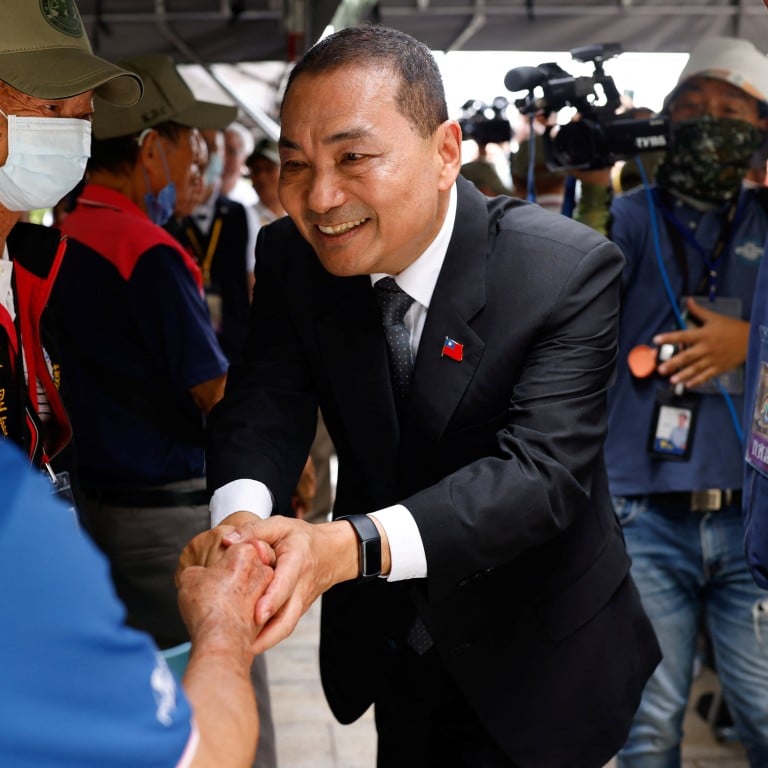
Taiwan opposition KMT’s presidential candidate Hou Yu-ih slated for US visit in September
- High interest in New Taipei mayor’s views on island’s defence and security expected among American officials and experts he meets over eight-day trip
- Visit follows US stopovers by poll-topping DPP candidate William Lai Ching-te that upset Beijing and triggered military drills around Taiwan
Hou’s visit aimed to lay the groundwork for “deeper relations” and promote ongoing “substantive exchanges” between Taiwan and the US, his campaign office said, according to Taiwanese news service CNA.
The Chinese embassy in Washington did not immediately respond to a request for comment on the visit. But in the past it has condemned trips by Taiwanese officials and semi-official representatives as dangerous separatism.
It is customary for Taiwanese candidates to meet US officials and members of Congress before a presidential election. Such outreach is meant to help Americans understand their policies and can burnish candidates’ overseas credentials with voters back home.
A poll released this week by the DPP-leaning Taiwan Public Opinion Foundation showed Lai held a 43.4 per cent favourable rating, compared with 13.6 per cent for Hou and 26.6 per cent for Ko Wen-je, who heads the smaller Taiwan People’s Party. Other polls have shown smaller gaps between the candidates, with Lai continuing to lead.
Taiwan arms boosted as US approves US$500 million in F-16 sensors
Ko visited the US in April, before announcing his candidacy, and said in July he was considering a second visit as a presidential candidate before the election.
Beijing favours the mainland-leaning KMT over independence-minded DPP. Hou, the mayor of New Taipei, was officially nominated by the KMT in July after spending some three decades in the police force, rising from a patrolman to become head of the National Police Agency in 2006.
Hou’s campaign did not immediately furnish the names of those he planned to meet in the US, other than Laura Rosenberger, chairwoman of the American Institute in Taiwan, a non-governmental organisation that effectively functions as the US embassy in Taipei. Nor did it state whether he would meet US government officials, saying the details of the visit were still being worked out.
Hou, who is generally regarded as less well-known in the US than Lai, is expected to assert his commitment to Taiwan’s democracy and its values, his campaign office said.
Why Taiwan’s KMT will back Hou You-ih for president against all odds
Beijing sees the island as a breakaway province to be reunited with the mainland, by force if necessary. Washington does not have official diplomatic relations with the island and opposes any unilateral changes to the status quo by either side.
Lai’s recent US stopovers in New York and San Francisco were intentionally low-key, involving no publicly disclosed meetings with senior US officials or members of Congress, analysts said, as he sought to counter his reputation for being provocative.
In July, Hou said he endorsed the 1992 consensus, a tacit agreement that there is only “one China”, but the two sides may disagree on what that refers to.

